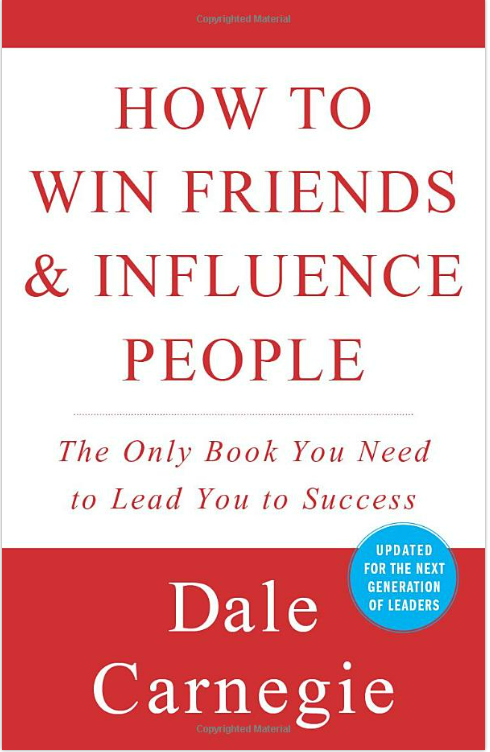Think about the last time you shared a dinner with friends at a nice restaurant. Was it an enjoyable experience? Can you remember all the details? How carefully was the food presented? How professional was the service? How clean and comfortable was the restaurant? Was the noise level acceptable, enhancing the meal? Overall, did you have a pleasant experience, and will you be inclined to patronize that restaurant again in the future? These are all valid questions about your evening, and each of these points contribute to the lasting memories about your dinner at that restaurant. However, if you’ve noticed, I haven’t even mentioned your actual meal.

Having spent most of my life living in and around New Orleans, one of the greatest restaurant cities in the world, I have experienced some of the top culinary offerings available. Ironically enough, when I think back to some of the best evenings that I’ve ever spent at a restaurant, often my favorite memories are related to the entire dining experience, rather than the actual food that I ate. While there are some notable exceptions to this statement (such as Bananas Foster for desert at Brennan’s), even these gastronomical events are linked with the memorable presentation that fixed them in my mind.
Thinking back about all the restaurants that have made it onto my own mental “bad list,” most of the time those bad memories are linked to something other than the food. Often it was a specific person or unfortunate incident that turned the evening at that restaurant into a bad experience.
Memories
I wanted to bring up these points to emphasize the importance that personal interaction to can have on our memories and our level of satisfaction with an event. As humans, we are strongly influenced by our emotions, and our memories are typically rooted in the emotional state we were in when something occurred in our lives. Most of us have fond memories of the place where we graduated, as we were undoubtedly quite proud of ourselves at that moment in time. We probably avoid the restaurant where someone unexpectedly broke up with us, as we associate that place with anger and rejection.
The point is that our emotions are very important in determining how we feel about something or someone. They often play a very important role in how we remember important events in our lives. It would be foolish for us, as business professionals, to ignore the lasting effect that emotions can have on our clients’ perception of the services that we provide.
The emotions of man are stirred more quickly than man’s intelligence.
Oscar Wilde
If we provide a good product and make our clients feel valued, they will be happy and feel as though we care about their happiness and well-being. If we provide poor service, and seem as though we long to be somewhere else while we are working with them, they will remember us as aloof and disinterested. They will believe that we care about nothing other than the money that accompanies their transaction. The emotions you’re able to evoke in your clients can go a long way in determining how satisfied they will be with your service, which in turn leads to positive (or negative) reviews and referrals.

Do You Have Skills
Armed with this knowledge of the importance of human emotion, we would be foolish not to attempt to sharpen our skills in this area, figuring out the best way to help our clients have a positive, enjoyable and memorable interaction with our business.
For those of us who work in the real estate industry, our clients are often making the biggest financial decision of their lives, and as a result they’re incredibly nervous and apprehensive. The things we do, the words we say and the way we behave when we are working with these clients can have a profound emotional effect on them. Our interaction with them has the ability to impact them on an emotional level, burning into their memory an overwhelmingly positive or undeniably negative experience that can be carried with them throughout their lives.
We have the ability to make them even more nervous and apprehensive, totally destroying any possibility of having a pleasant home buying experience. We also have the power to nurture and support them, allowing them to slowly grow and learn during the process, helping them to gain confidence in our abilities and the home buying process. This in turn can increase their self-confidence, helping to reassure them that they are making a sound purchase decision and increasing their pride and sense of ownership. Both good and bad outcomes produce powerful emotions, which will color the memories of their experience with you and your business for many years to come.
Providing Value
In my home inspection business, the main goal of my job is to inspect a home for a potential buyer and let them know if there are any items that may adversely affect their decision to purchase a property. However, I would be doing by clients (and my business) a serious disservice if I did not take advantage of the many other opportunities to provide service and value to them while I am performing an inspection.
Every businessperson can multi-task, offering and providing value to their clients on many different levels, all the while providing the primary product that their client is paying for and expecting. In the real estate industry, this means that you have the ability to ease some of your client’s tension and allay some of their fears regarding purchasing a home. Something as simple as a well-timed assurance or a well-crafted response can make the difference between a lifetime of happiness with their home or an unhappy and constantly complaining client that you wish you’d never met.

The home buying process also provides you with the opportunity to cement yourself in the minds of your clients as an authority figure in your industry. By presenting yourself as the go-to person, you increase the possibility that you will be called for advice when something eventually goes wrong (and trust me, eventually everything goes wrong), rather than served with a subpoena the first time there is a problem. A little emotional goodwill can go a long way.
Opportunity Knocking
All too often, as busy businesspeople, we fail to realize the invaluable opportunity that’s been dropped into our lap. Instead of embracing our job as mentor and coach, making our clients feel more confident and self-assured in their purchase decision, we fall woefully short in our duties. We take an unfortunately myopic view of our jobs, focusing solely on the task at hand. We simply see ourselves as a presenter of facts, like a high school student pounding out a final exam, regurgitating memorized information without a clear understanding of their effect on the situation.
In order to grow a successful business, we must always strive to provide more value to our clients than they are expecting. Think back to your dinner with friends. How likely are you to brag on a restaurant that simply delivers exactly what you were expecting? We don’t often read social media posts that say, “The burger was decent; the fries were warm when they brought them out and the waiter got our drink order correct.” No, we do not get excited by receiving what we expect. The status quo does not move us to action. People don’t post about getting what they are supposed to; the ordinary doesn’t excite.
Home Inspections
In the home inspection industry, we must always be cognizant of the fact that our clients are placing their trust and future happiness in our hands. They are relying on us to not only discover the unknown facts about their future home, but to be able to help them understand what we find and what effect those finding will have on their future happiness. They rely on us to not only relay the facts about our inspection findings, but to put those facts in proper perspective.
What good will it do to tell your clients that you’ve found the house lacks a proper grounding electrode system without explaining to them what a grounding electrode system does and what the lack of one in their home can mean for them. By leaving your clients confused, you’re certain to make them feel intellectually inferior, which is a sure path to discontent and regret; two emotions that are sure to lead to unflattering posts about your business. Why try to make your clients feel dumb when you can easily spend a few minutes explaining to them the implications of the deficiencies you found?
Influence is providing value and attention to others.
Laura Fitton
If you think back to all the different businesses that you’ve hired over the years, odds are that you probably couldn’t recall most of those transactions. It’s likely that very few of them that stand out in your mind. You probably only remember the ones where you felt like the business provided either much more or much less than you were expecting.
In today’s always on, always connected, everyone’s their own media outlet world, it’s important to remember that everything you do can (and will) find its way onto the internet. Even the most innocuous, little old lady client, who looks like she couldn’t even figure out how to turn on a smart phone, much less post on Instagram, can become your biggest fan, or your most feared marketing nightmare. The little things that you do (or don’t do) for your clients can make the difference between a four-star review and a never-ending Google review headache.

A Little Bit Goes a Long Way
One of the most favorite parts of my job is educating new home inspectors about the industry. As they must pass the National Home Inspectors Exam, their focus is understandably on learning as much as they can about the specifics of the inspection industry: How many steps before handrails are needed? Where do you need to install GFCI outlets?
While you obviously must have extensive knowledge about your industry to thrive in your career, there are many other skills that must be mastered to have a successful business. Learning the intangible things that can result in a positive emotional experience for your clients can be the difference between business success and shutting the doors too soon.
I attempt to relay this information to the students of my home inspection school, letting them know that they must take advantage of every opportunity available to them to excel in their industry. I often tell them while it’s not too difficult to learn the information that they need to pass the home inspection exam, it can be extremely difficult to learn how to talk to people.
“People skills” are something that you’re born with; you either have it or you don’t. And while you can always improve on your people skills through practice and study, it is very difficult to enhance a skill that you don’t already possess. It takes a certain level of commitment to self-improvement to advance in this area. Adapting your methods of interpersonal relationships to help improve your level of positive emotional interaction with your clients can be a difficult hurdle to overcome. It often involves admitting that you are weak in this area and working hard to overcome your shortcomings.

We like to think of ourselves as being skilled in every area of our lives. It takes a lot of strength and self-awareness to be able to face the fact that there’s something that we aren’t good at, a skill that we’ve yet to master. Being self-confident enough to admit your weaknesses is a rare skill; one that is not possessed by many people.
If you are lucky enough to be able to do this, take advantage of this blessing and use it to your advantage. Take every opportunity presented to you to improve, gaining every conceivable skill that you can acquire in order to transform into the best version of yourself that you can.
To paraphrase Gail Godwin, American novelist and short story writer, running a successful business is one-fourth preparation and three-fourths theater. Business owners that do a good job of not only relaying information to their clients but helping them understand that information and its impact on them and their lives will eventually find success.
Maya Angelou, American author, poet and civil rights activist said it best: “I’ve learned that people will forget what you said, people will forget what you did, but people will never forget how you made them feel.” Make your clients feel like you care about more than the profit that they represent. Make them believe that you care about them and how happy they’ll be once you finish working with them, and you’ll be amazed by the results.
Your clients will become your biggest fans; your most ardent supporters. They will take to the social media airwaves, providing you with more beneficial marketing than you could ever hope to pay for. They will happily refer you to their friends and family, helping to provide you with a future source of referrals. And whenever they have a problem, instead of hiring an attorney and bashing you on every social channel available, they’re more likely to touch base with you seeking advice and help.
All because you made them feel like they represented more to you than just a paycheck.
Would you like to get an email every Friday where we share the newest things we’ve discovered about home inspections? CLICK HERE to sign up.
Want to be an Influencer in Your Field? Share This Post!
Thanks, Joe


